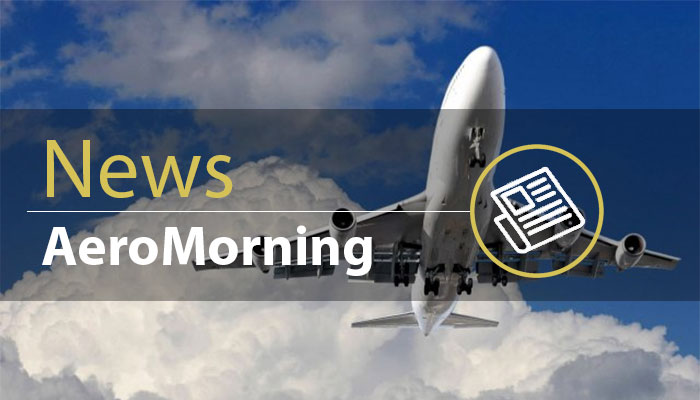LDACS – The future of ATC communications
LDACS is set to be the worldwide standard in ATC communications, opening up entirely new use cases for airlines and communications service providers.
In partnership with DLR and DFS, Rohde & Schwarz built LDACS demonstrator devices and carried out flight tests with a DLR test aircraft. (Image: Rohde & Schwarz)
Rohde & Schwarz has been working with research partners to develop the new L band digital aeronautical communications system (LDACS), a new air traffic control (ATC) communications system that significantly increases bandwidth and allows modern IP-based communications. It is poised to replace the current VHF digital link (VDL) mode 2 in civil aviation to become the future worldwide standard.
LDACS offers data throughput that is up to about 200 times faster than VDL mode 2. LDACS specifically uses portions of the L band frequency reserved for flight communications. It uses interference suppression algorithms and is optimized for minimal out-of-band emissions and trouble-free operation alongside other flight equipment operating in said band.
“Modern aviation demands the secure exchange of data,” Thomas Bögl, Director of Technology and Studies at Rohde & Schwarz, explains. “LDACS reliably enables high data throughput that is secured with encryption. It can support a wide variety of new applications, such as the data connections airlines need for flight crews to efficiently plan fleet operations.”
“Far more aircraft are flying nowadays and air traffic controllers need to be able to distribute new navigation data faster, so that they can adjust flight paths in time when the situation changes in their airspace. One interesting preliminary LDACS application uses new data links to extend or replace slower VHF radio links in existing ATC systems with much faster LDACS links. These quickly and noticeably speed up data transmission without requiring a new system,” Mr. Bögl continues.
Another LDACS benefit is its very simple path to a market launch. Reliable and secure data transmission from LDACS will also help with new environmentally friendly navigation methods. The plan is to select aircraft routes with precise coordinates in three-dimensional space and with rigidly defined time limits. The 4D trajectory concept can be used to dynamically route aircraft near airports to avoid noise protection zones.
“The long-term goal is complete flight path management from departure to destination exclusively with 4D
trajectories for much more efficient and environmentally friendly airspace usage, resulting in lower carbon emissions,” adds Marius Münstermann, Vice President ATC, Rohde & Schwarz.
The German Federal Ministry for Economic Affairs and Climate Action has created an aviation research program (LuFo) for LDACS. Rohde & Schwarz is part of the program. Other project partners such as the 1/2German Aerospace Center (DLR) are joining forces to help develop LDACS technology. The working groups in the program are collaborating with the International Civil Aviation Organization (ICAO) to create and implement flight acceptance standards.
Rohde & Schwarz GmbH & Co. www.rohde-schwarz.com
As part of the recently launched LuFo project, “Pave the Way to Digital Aeronautical Communications” (PaWaDACs), a technological cornerstone has been set that allows the product development of LDACS ground equipment and LDACS airborne equipment starting from 2025. The market launch of the equipment is expected for 2028. The early involvement of Rohde & Schwarz in the LuFo project will give it a competitive edge in the race for market leadership among LDACS suppliers.
The PaWaDACs project has been underway since early 2022. It focuses on miniaturizing equipment demonstrators and preparing a realistic test installation at two locations operated by the German air navigation service provider (DFS). Once completed, the key technological steps needed for future LDACS systems will be firmly in place. A solid basis will be available for developing new civil aviation products.
“Rohde & Schwarz will be able to supply equipment for ground stations and be well-positioned to offernsolutions to aircraft manufacturers, integrators and their customers for use on board of aircraft,” Mr. Bögl concludes.
sOURCE: LDAC





Be the first to comment on "The future of ATC communications"